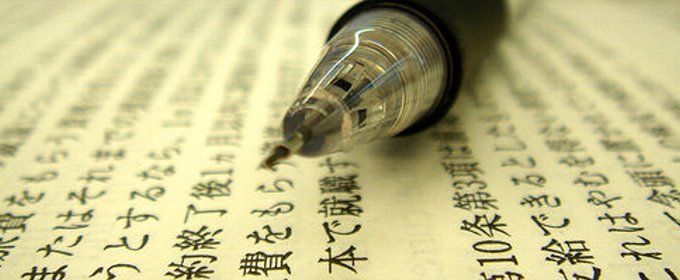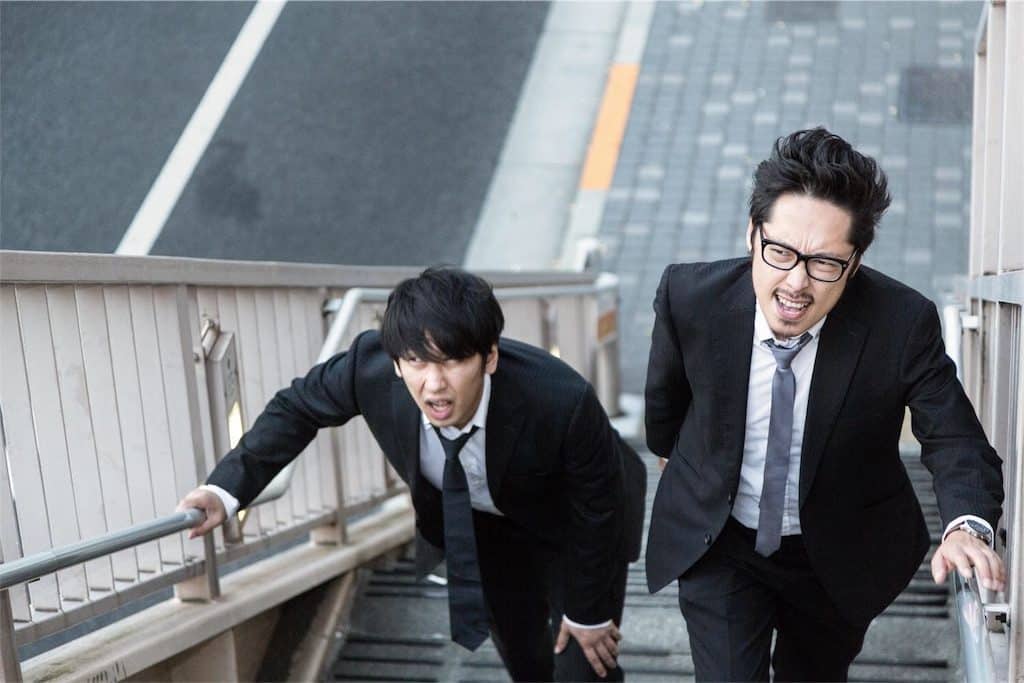One question that I’m asked all the time is: “How hard is it to learn Japanese?”
My instinctual answer would be to say that it’s easy, but I’m 11+ years invested in the language already.
Well I would say that wouldn’t I?
However, I do truly believe that anyone can learn Japanese with a little time, effort and consistency.
Why speaking Japanese is easier than you might think
There’s No Tones, Easy Phonetics
Unlike say, Chinese or Thai, Japanese has no tones. One great thing about Japanese is that you can immediately use a new word and everyone will understand you. Try that with Chinese or even Korean!
With the exception of a few phonemes that don’t appear in English (Tsu and Dzu for example), there really aren’t many difficult sounds in Japanese.
In fact, Japanese is such a sound-poor language that can be challenging for Japanese people to listen to and understand foreign languages.
One note about intonation: though it’s not a tonal language, intonation does matter in Japanese. In that way, it’s similar to how we use intonation to convey meaning in English. But it won’t make or break you being understood.
Lots of Loan Words from English
If you’re a native speaker of English, you’re in luck. There are thousands of loan words from English in Japanese, many of which are now used more than their original Japanese counterparts.
Some common examples of loan words include:
- Suupaa (Supermarket)
- Maiku (Microphone)
- Biru (Building)
- Pasokon (Personal Computer)
- Depaato (Department Store)
Basic Grammar Isn’t Too Bad
Basic grammar is easy once you get the hang of the fundamentals. Japanese is an SOV language, which differs from SVO European languages. As such, it can be a bit tricky starting out. However, because it is organized fairly logically it makes for easy learning. Verb conjugation is relatively straightforward, however one thing that causes a lot of confusion with beginners is the correct use of particles (‘ga’, ‘wo’, ‘ni’, etc).
Another good point for learning Japanese is that the verbs don’t change with the sentence subject. For example:
- I see. (Miru)
- He/she sees. (Miru)
- They see. (Miru)
Finally, unlike some European languages (French, Spanish), nouns are not masculine or feminine; they don’t have genders in Japanese. This is a godsend if you’ve ever tried to learn a language like French!
Limited Vocabulary Used in Conversational Japanese
Learning to speak conversational Japanese is actually comparable to any other language. The vocabulary used between friends and family is fairly limited. If you put in the effort on a daily basis, there’s no reason why you shouldn’t be conversational in a matter of months of living in Japan.
Practicing is Relatively Easy
Another easy aspect of Japanese is the shyness of the locals with regards to English. In my experience, Japanese people are embarrassed to use English so your efforts to learn the language will be warmly welcomed (unlike the Germans in Germany who always want to speak English!).
Reading and writing Japanese can be difficult

The writing system in Japanese is often characterized as complex, which is a fair assessment. Japanese uses 3 different ‘alphabets’ in writing: hiragana, katakana and kanji.
Hiragana and Katakana
The first of these two alphabets are actually phonetic alphabets: Hiragana and katakana. Hiragana is used for native Japanese words, while katakana is used to write loan words.
They can both be learned in a single day of dedicated study, so it shouldn’t be too intimidating. There are a few characters people commonly mix up, but you can find good mnemonics for these as well.
Kanji
While I maintain that learning to speak Japanese is straightforward, reading is pretty difficult. Very difficult, even. To read Japanese, you must master 1000s of Chinese characters (known as the kanji).
Further, and to make matters worse, there are multiple ways to pronounce any given kanji (kun yomi and on yomi) so it’s a long old road to literacy. It’s not my intention to scare you away here… Again, if you commit to studying the written language and put the necessary time in then you will make significant progress.
But I won’t sugarcoat it. It will take you a lot of time and effort to become literate. To paraphrase Barry Farber, when it comes to Japanese you should make speaking your hare and reading your tortoise.
There are certainly shortcuts to learning Kanji, one of which is Remembering the Kanji, which we reviewed in our best books to learn Japanese.
Keigo and Formal Japanese
Formal Japanese (Keigo) is far from normal conversational Japanese, so much so that you could almost consider it a different language. Ok, hyperbole…
That said, if your goal in using spoken Japanese is mostly to have conversations with friends, then you might not need to study this much.
Business Japanese is very different from regular conversation

Now let’s assume that you can converse with and text your Japanese friends with ease. You’ve even learned enough kanji to the extent where you’re able to read some pretty tricky texts too. So have you made it? Not just yet!
If you plan on ever working in the Japanese business world then there’s still a long way to go. You can be very functional in casual Japanese and yet useless in a business context. Go listen in on a business meeting in Japanese and feel your confidence drain away into nothing.
I think it’s not exaggerating to state that business Japanese is a distinct language of its own. It bears little resemblance to what’s commonly spoken in the bars or at home. This is of course down to politeness and technical terms to some extent, but many words are actually completely different.
When Japanese university students graduate and start their first proper jobs in the real world, they have to study business Japanese. That is, how to speak on the phone with customers, write business emails and so on.
A Real Life Example of Business Japanese
Back when I was working for a Japanese IT company, I still remember observing a young coworker’s first week on the job. He got constantly chewed out by his older sempai for his choice of wording on the phone. On Monday he was fresh and keen. By Friday, the poor kid was almost in tears! This strict treatment continued for months until he apparently reached a level of eloquence deemed acceptable.
It’s amazing to me that almost 2 decades in school doesn’t prepare native Japanese people for the business world, but I suppose the state of modern education in Asia is another post for another day.
For foreigners, mistakes will be tolerated and indeed expected. However, understanding what’s going on around you will be vital to your job success in Japan. If you are at the stage of considering a career in Japan, I recommend looking into the Business Japanese Proficiency Test (BJPT). Certification is highly prized by Japanese employers so make sure you have some evidence of your language proficiency.
Case Studies: How long did it take you to learn Japanese?
Rohan
“In my case, it took about 6 months to reach a decent level of spoken Japanese. My approach was extremely simple. I bought a ton of language courses and Japanese textbooks as well as socialising with Japanese people wherever I met them. No boring language classes! The results naturally followed and it was an extremely fun process. Definitely one of the best periods of my life so far. Of course, I was still making tons of mistakes but I was usually understood.”
Michael
“I think made the biggest strides in my Japanese at two different time periods. The first was when I did a study abroad year in Japan in university. It was easy to make Japanese friends, and practice the language daily. I’d say I reached a low-intermediate conversation level in that first study abroad year.
The second big level jump was when I was working as an English teacher in Shizuoka. I gave myself two ambitious goals: pass N2; and really improve my Japanese speaking. Studying for N2 gave me the motivation to really dedicate study time to reading and understanding. But the biggest thing that helped my Japanese was shadowing native Japanese daily using Japanese podcasts. At first I could only catch words here and there, but eventually I could do entire sentences. After just a month or two, my Japanese friends started complimenting me on how fast my accent and speaking were improving.”
Conclusion: How hard is it to learn Japanese?
Japanese Is Easy Enough To Speak; Takes Time To Learn To Read And Write
After some consideration, I would say that Japanese is an easy language to start out in. Conversation comes quickly if you study enough and put yourself out there.
However, reaching an advanced level in Japanese is a difficult mission. It’s certainly not mission impossible but it will require some serious dedication and a long process. Perhaps all languages are that way to some extent, but Japanese is deep.
Despite now working as a freelance Japanese translator for many years, I still learn something new every day.
On that note, we wish you the best of luck with your studies! If you’re looking to get serious about learning Japanese, we recommend you take a look at JapanesePod101.
What were your experiences of learning Japanese? Did you find it easy or otherwise? Let us know in the comments below!
Rohan has spent years studying Japanese, Chinese and Korean, and currently lives in Japan. He created the perapera pop-up dictionary plugins to help other learners of Chinese and Japanese.




For me Japanese was not too hard. But I am a Chinese/English bilingual so maybe it was easier for me. ^^
I really like this “yes and no” answer. When someone says that Japanese is easy to encourage others to start studying it, I feel a little bit down because of my 1.5 year invested in the language. On the other hand, it’s definitely not true that Japanese is incredibly hard. Maybe some people have easier time with foreign languages than me, but I consider every foreign language a challenge, but not an impossible one.
Japanese in particular has simple pronunciation, very logical although unusual for a Indo-European language native grammar and a very tricky writing system. Also, the closer the language you study is to the language or languages you are proficient in, the faster you’ll learn all the necessary vocabulary. To sum it up, Japanese is not incredibly difficult but challenging enough and most certainly takes very very long to study.
This post is funny, sincere and accurate, but also slightly deceiving. Japanese grammar is easy and, if you get into, kind of structured. At first. Then, being the Japanese an empathic language, it gets insane cause it tend to communicate not only the message but also the feelings with which it is expressed. Luckily most of the advanced pattern are very rarely used in the everyday. Kanji are, in my opinion the easiest part. They have reading (ON and KUN) and rules – that as every language have a tons of exceptions. Nevertheless Japanese is a very complicated language for the reason you implicitly stated: Japanese has 3/4 (if you are a woman 5/6) diversified registers that are, in the worst cases, totally different among them. True the “survival” level can be mastered in no time and Japanese people gap in English will grant you abundance of chances to use the language but the people, for the basically different idea of social relations/ socialization, will be rarely really “parenting” you through the language learning process (something that happens very easily in China, USA, Italy..), ergo you will be likely doing thousands of times the SAME identical conversations with different people, learning not very much. I said parenting because that is considered one of the 5 essential “tool” to master a language quickly by Chris Lonsdale. What I consider very hard in Japanese is the use of the vocabulary, in the sense that is not as difficult to understand and remember some expression as much as it is to properly use it. Once a Japanese professor pointed at her head and said to me and my classmates “is not difficult to talk like a Japanese.. but we consider almost impossible for a foreigner to THINK like one.”
I wholeheartedly agree with this post.
Some additions from personal experience:
Daily Japanese uses only limited vocabulary, so it’s indeed not so difficult to get to conversational level. I would even say daily Japanese is quite poor in word diversity & depth.
But business settings, books, even manga (if you dig out of Jump publications) will use a very, very much more extended vocabulary that, as pointed by the author here, means daily new words popping out even after 14 years of study & daily use in my case (living in Japan, Japanese wife & job in a Japanese company).
Latest examples: 頓服、垣間見る、朗報、おぞい、強靭、水嵩、謗る・・・ definitely not daily words, but nothing so extravagant either that I wouldn’t cross the equivalent in English or French every now & then. (i.e. wouldn’t take 14 years)
Another point: After a while, learning kanji help grow your vocabulary immensely. It’s an advantage over alphabet: when you see a word you don’t know, but know the kanji of, you might immediately understand the meaning (with more or less accuracy). Works with Chinese, too.
Example: I could kind of guess the meaning of the above 朗報 and 強靭 also I had never seen those words before, because I know the kanji they’re made from.
experiencing share about Japanese are friendly with humble passionate hearts of gratitude in personalities; I should rather is Japanese needed to extra hard works production elsewhere on building and factory; I would Japanese studies well aboard to easy understanding foreigner stay here in Japan; language culture of Japanese are uses three different systems for writing. There are two syllabaries—hiragana and katakana—which have characters for each basic mora (syllable.) Japanese language, with more than 50,000 different symbols by some estimates. However, most Japanese can get by with using about 2,000 different kanji in everyday communication. In Japan, some of the core values are thinking of others, doing your best, not giving up, respecting your elders, knowing your role, and working in a group. … From a very young age, Japanese children are taught omoiyari (to notice and think of others). Japan’s cultural heritage are greatly valued and designated as ‘living national treasures’. Japan’s history has been defined too by its literature and poetry. The culture identified with the Japanese was not brought to the islands of Japan until about 300 B.C. It was brought by a people called the Yayoi from the Korean peninsula.
Japanese is the hardest langauge in the Entire normal
Universe 5.8*10^123 light years+ 93 billion light years
Mainly because It has 2136 Kanji+100 Japanese letters and complex grammar
But It is diifiicult
Total land area for planet, earth is 510.1 millon km2
about 362.1 millionkm2 is ocean about 3400 meters deep
148 millon km2 is land
countires and Poulation lives here since there is no techology storng yet even in 2020 to develop bases under ocean.
Anglosphere Population is 1.5 billion
Land area 29 millon sq km2
Means that English langauge is offical in
2900,0000km2 out of 148,000,000km2
land on planet earth
and 1500,000,000 out of 7750,000,000 population use English as an offical langauge
and The hardest language for English users
is the Japanese language
Japan377,973km2
Population
126,317,000
GDP$5.176 trillion
� Per capita
$41,021
China population 1420,000,000
land area 9400,000km2
Gdp 14.2 trillion
Per Capita 10,500
South Asia Population 1814,630,000
GDP 4.1 trillion
Per Capita 15,00
land area 5200,000km2
The earth population is about
But languages are more united in china
Therefore mandarin Chinese is easier than languages in South Asia
And Japanese.
I decided to Take Jlpt up to N3 because it is very rare in Anglosphere
I would like to saying Japanese is friendly very humble passionate of heart gratitude. Japan is famous culture worldwide discover their background with Japanese society heritage. Everything I rather Japanese are cultural human rights beliefs mostly they participated religious freedoms.Japanese was official language borrowed at Japan nationals countryside.